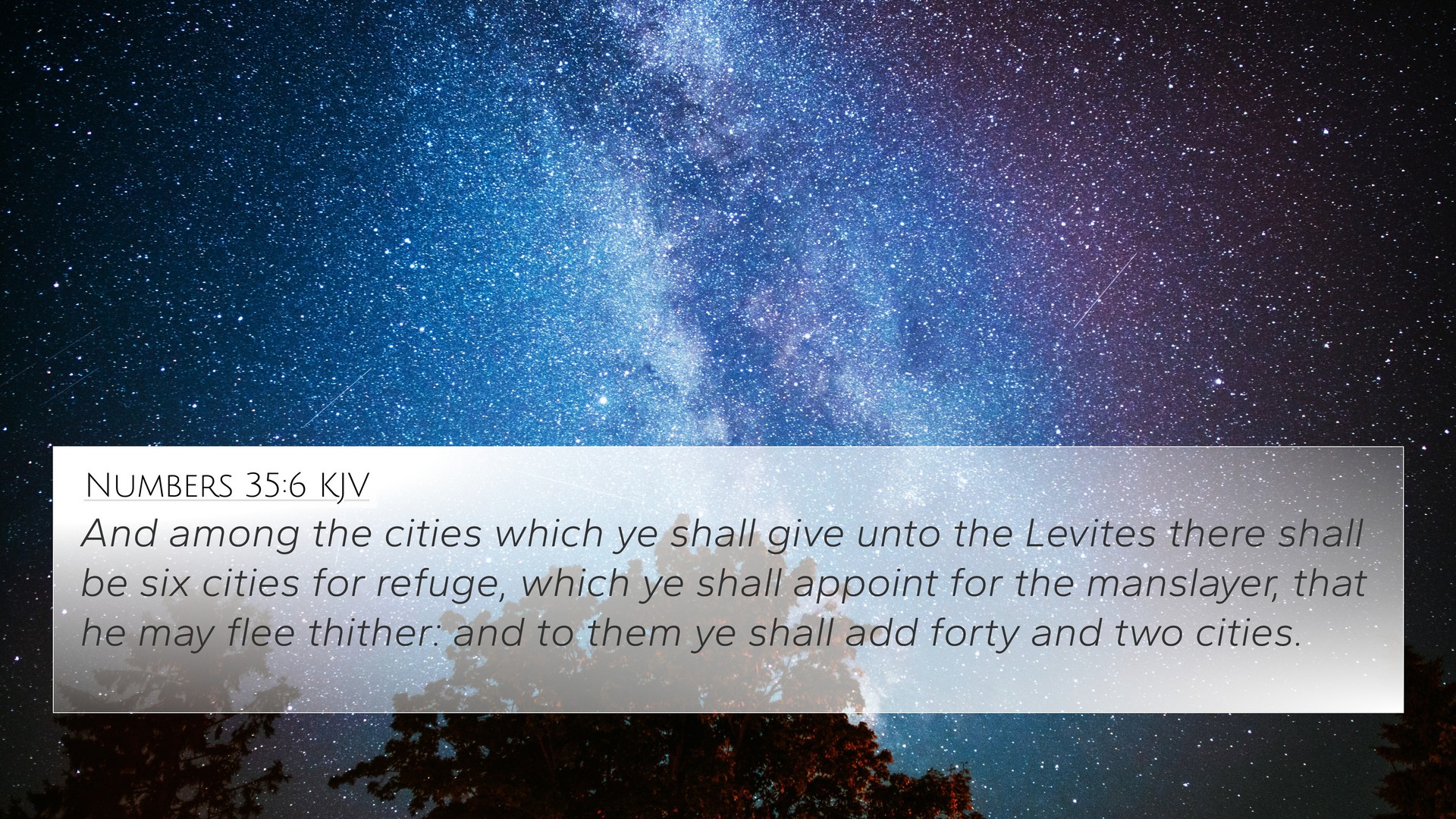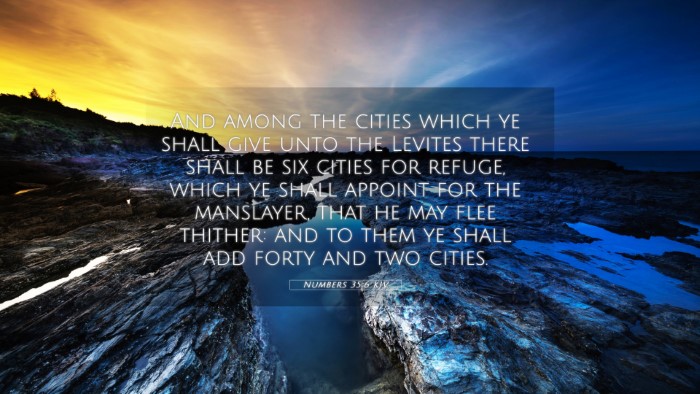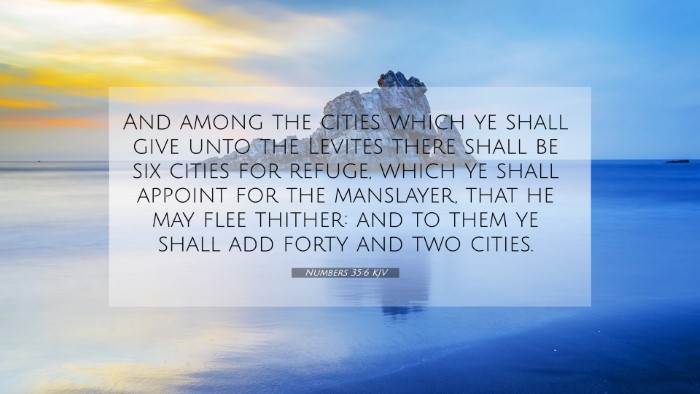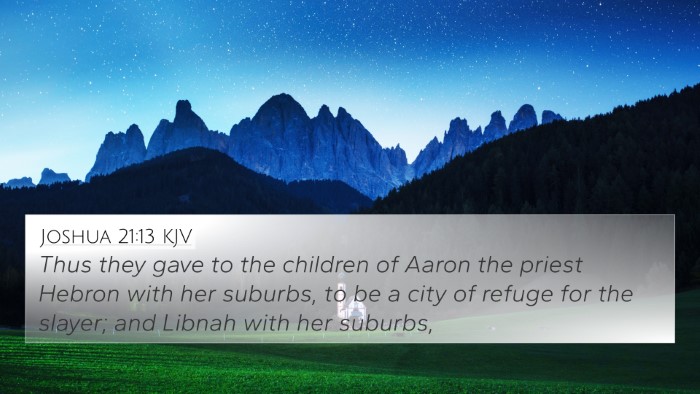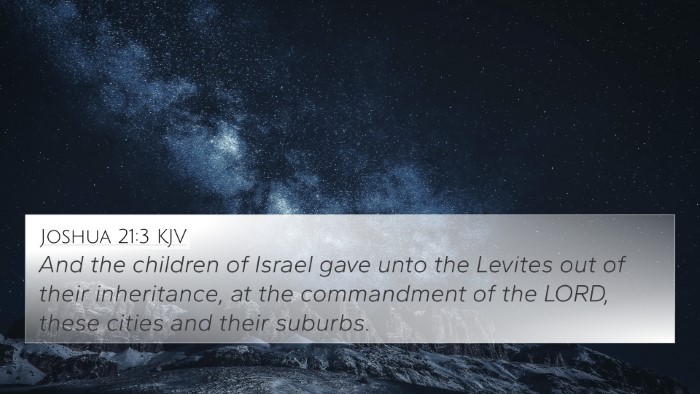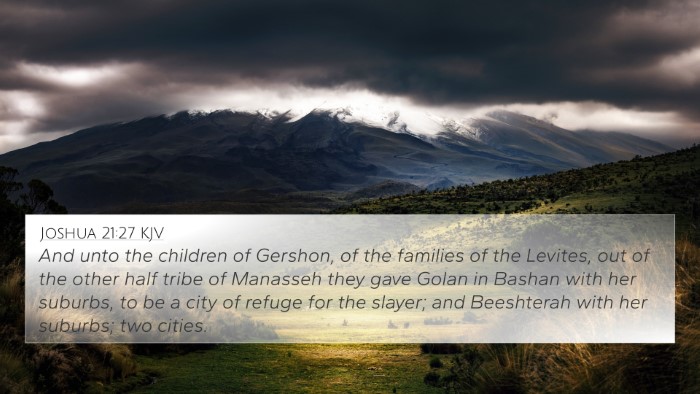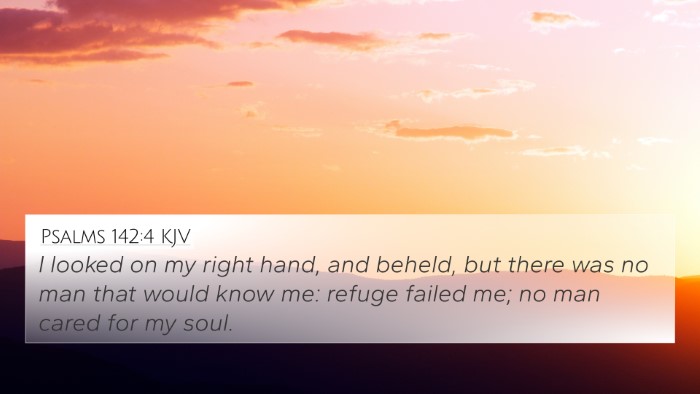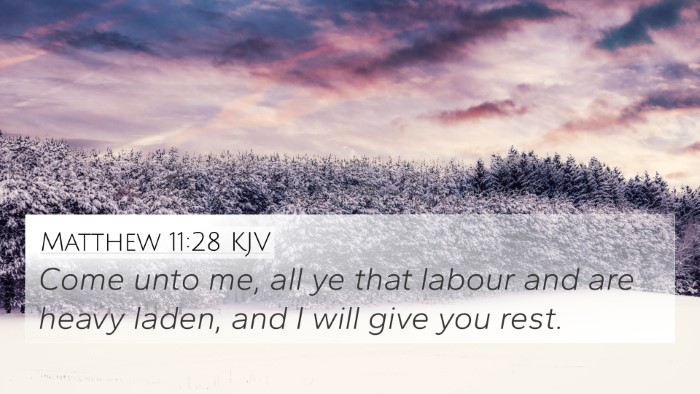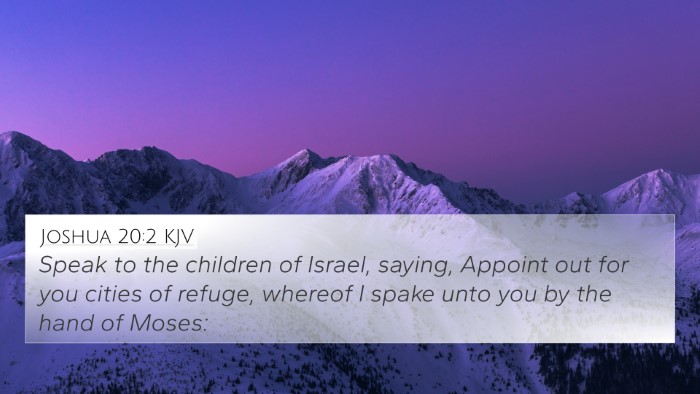Meaning and Interpretation of Numbers 35:6
Numbers 35:6 states: "And among the cities which ye shall give unto the Levites there shall be six cities for refuge, which ye shall appoint for the manslayer, that he may flee thither: and to them ye shall add forty and two cities."
Overview of the Verse
This verse emphasizes the provision made for the Levites and introduces the concept of cities of refuge. Such cities were designated places where someone who accidentally killed another could seek asylum. This reflects God's justice and mercy, allowing for protection against revenge yet maintaining societal order.
Context and Significance
The context of Numbers 35:6 revolves around the laws governing the Israelites. It addresses the need for a system of justice that differentiates between intentional murder and manslaughter. This idea promotes a fair legal system and also mirrors God's compassion toward unintentional wrongdoers.
Commentary Insights
-
Matthew Henry:
Henry emphasizes that the cities of refuge not only serve a protective purpose but also mirror Christ's refuge for sinners. The Levites, as representatives of God among the people, were integral to the spiritual life of Israel. The command reinforces the idea of mercy in the law.
-
Albert Barnes:
Barnes points out that the arrangement ensures that justice is tempered with mercy, allowing individuals to avoid wrongful punishment. He elaborates on the geographical significance of these cities, which were strategically placed for accessibility, demonstrating God's consideration for the needs of His people.
-
Adam Clarke:
Clarke notes that the intentional separation of these cities reflects an understanding of human nature and societal dynamics. He highlights the importance of refuge in preventing further bloodshed and the role of the Levites as mediators between God and the people.
Bible Cross-References
This verse connects with multiple other scriptures, revealing a broader understanding and thematic connections throughout the Bible:
- Exodus 21:13: This passage discusses the concept of cities of refuge and distinguishes between intentional and accidental killing.
- Deuteronomy 19:2-4: These verses detail the establishment of cities of refuge and the conditions under which one may flee there.
- Joshua 20:2-3: This scripture recounts the allocation of cities of refuge and their intended purpose for those seeking safety.
- Hebrews 6:18: The author of Hebrews speaks of refuge found in God, paralleling the concept of fleeing to a city of refuge.
- Psalm 91:2: This verse emphasizes the Lord as a refuge and fortress, highlighting God's protective nature.
- Romans 8:1: The theme of safety from condemnation for those in Christ is echoed, emphasizing God's grace and mercy.
- 1 Timothy 1:12-14: Paul's testimony of mercy parallels the provision of refuge for those who have sinned but seek forgiveness.
Thematic Connections
Numbers 35:6 is rich with themes such as justice, mercy, and community protection. The cities of refuge embody God's desire for safety and rehabilitation rather than retribution, demonstrating the divine balance between justice and mercy:
- Justice: The law serves to protect society while allowing forgiveness for mistakes.
- Mercy: The cities of refuge symbolize God’s mercy, offering protection from vengeance.
- Community Responsibility: The Levites' role underscores the importance of spiritual leadership and responsibility within the community.
Understanding Cross-Referencing in Scripture
Using a Bible concordance or a Bible cross-reference guide can greatly enhance one’s understanding of biblical texts. Cross-referencing Bible study methods allow for a deeper exploration of interconnected themes and provide a broader perspective on scriptural meanings.
For instance, identifying connections between the Old and New Testaments may reveal how concepts of refuge and redemption are woven throughout scripture. This approach is beneficial for sermon preparation or personal study, allowing individuals to see the thematic Bible verse connections that span across various books.
Conclusion
Numbers 35:6 serves as an important reflection on the interplay of justice and mercy within the framework of God’s law. Through cross-references and thematic analysis, believers can draw connections and deepen their understanding of how such principles are consistently exhibited throughout scripture. This rich perspective encourages faithful engagement and study of the Bible.
